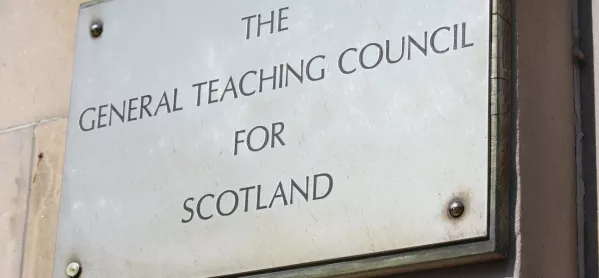A Moray primary teacher who was accused of shouting and exhibiting “intimidating behaviour” towards the children in her class - including pushing a pupil causing him to trip and fall and hit his head - is to remain in teaching after the case against her collapsed having been found “not proven”.
The primary teacher - who was not named - was also accused of digging her nails into a pupil’s arm “causing pain” and “recklessly” pushing two tables together squashing another pupil’s finger and “causing pain”.
In total there were allegations from 11 pupils against the teacher, some of which dated back to August 2016.
The primary teacher admitted during a police interview that she had become a “shouty” teacher but denied the allegations. She was suspended in February 2017 and she was referred to teacher watchdog, the General Teaching Council for Scotland (GTCS), in May 2017.
However, earlier this month, and more than two years after the initial referral to the GTCS, a fitness-to-teach panel found the allegations “not proven” after it concluded the evidence the GTCS case relied on - the pupils’ accounts of what had happened - was inadmissible.
At the hearing, the teacher’s representative argued the pupils’ accounts of what had happened were all hearsay accounts “as none of the pupils were to be called to give live evidence”.
The representative - who told the panel the teacher’s health had suffered over the period and she was “encountering real difficulties with mortgage payments” - said that “to admit hearsay accounts would be unfair and would deny the teacher the right of a fair hearing”. The representative also argued the opportunity to cross examine a witness was required for a fair hearing.
However, the GTCS presenting officer said the decision had been taken that it would not be appropriate to call the children due to their age; at the time of the allegations the pupils were aged seven or eight. She added that the Crown Office and Procurator Fiscal Service had expressed concern about exposing the pupils to the prospect of giving evidence - something that had influenced their decision not to proceed further with a criminal prosecution.
The presenting officer also said she intended to bring a witness who had conducted some of the interviews with the children; a witness who had conducted the disciplinary process with the teacher; and the school’s acting headteacher who had interviewed 18 pupils and eight parents.
However, the teacher’s representative contended that these witnesses would “not contribute anything to the evidence in support of the allegations”. They added that “there was no indication within the available transcripts of pupils being upset, anxious or distressed” and that, therefore, there was “no proper foundation for concluding that the pupils should not be involved in the process”.
“He submitted that GTCS should have approached each pupil individually and assessed each pupil individually in relation to whether or not they were or were not capable of giving evidence as opposed to treating them as a single entity,” according to papers published by the GTCS outlining the outcome of the hearing.
Ultimately, the fitness-to-teach panel “was not satisfied in the present case with the reasons as to why pupils were not present to give evidence”. The panel also questioned why the pupils’ parents had not been called by the GTCS presenting officer and noted that “colleagues of the teacher at the time of the allegations who may have observed behaviour were not to be called to give evidence”.
The panel concluded it would be “unfair to admit the hearsay accounts of the pupils” and that the allegations were “not proved”.
A GTCS spokeswoman said: “In this case, as detailed in the decision, the evidence that GTCS was seeking to rely upon was struck out by the panel on the grounds that it was inadmissible as hearsay evidence. Without this evidence GTCS was unable to prove the allegations against the teacher and the case was dismissed. As such the teacher is now free to teach without restriction.”





